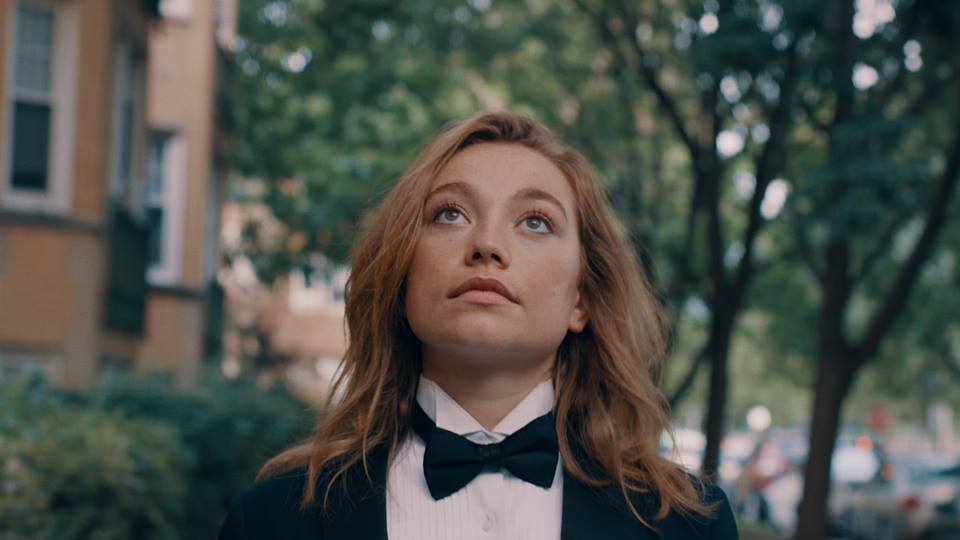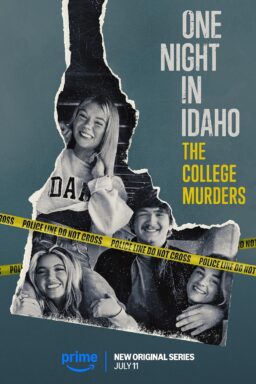Thumbnails is a roundup of brief excerpts to introduce you to articles from other websites that we found interesting and exciting. We provide links to the original sources for you to read in their entirety.—Chaz Ebert
1.
“CIFF 2017 Preview: ‘Princess Cyd,’ ‘The Square’ and Eight More“: At Indie Outlook, I preview ten selections at the Chicago International Film Festival currently running through October 26th, including Stephen Cone‘s sublime “Princess Cyd.”
“Stephen Cone’s films speak to me in ways few films ever do. They are timeless slices of life that also speak to the present moment, often juxtaposing the perspectives of people from different generations as they come of age. Miranda (Rebecca Spence) is a writer in the vein of Emily Dickinson. She is comfortable with being single, remaining in the home of her youth and embracing her spirituality without feeling bound by church law. Her niece, Cyd (Jessie Pinnick), is impulsive in ways people her age often are, bursting with hormones while falling for a local girl (a magnetic Malic White) during her summer at Miranda’s Chicago home. When Cyd makes a carelessly cruel observation about her aunt’s nonexistent sex life, Miranda counters with a firm but loving reply: ‘It’s not a handicap to be one way and not another.’ Her deceptively simple wisdom serves as a healing remedy for our caustically divided culture, magnifying how our differences should be celebrated rather than shunned. Cone has a peerless eye for talent (he cast ‘Stranger Things’ star Joe Keery before his career exploded), and the work he elicits from Spence and Pinnick is nothing short of sublime. Their final interaction on the phone—Spence affecting a cheerful demeanor, Pinnick blindsided by the strength of their connection—is so masterfully written, directed and acted that it moved me to tears. What is left unsaid is what resonates long after the credits have rolled. This is one of the year’s best films.”
2.

“Frances McDormand’s Difficult Women“: In conversation with Jordan Kisner of The New York Times Magazine.
“This ability to suggest a fascinating inner life just out of the viewer’s reach made McDormand’s career as a character actress. She takes marginal characters and makes them the most robust people in the movie. So it was with the fierce, Goethe-quoting widow in ‘Almost Famous,’ who gets a scant few scenes but earned McDormand an Oscar nomination; the hapless gym employee who wants a butt lift in ‘Burn After Reading’; the molelike film editor in ‘Hail, Caesar!’ McDormand explained to me that had she stayed in the theater, she would have played all the canonical leading women, but in Hollywood her looks disqualified her. ‘I was too old, too young, too fat, too thin, too tall, too short, too blond, too dark — but at some point they’re going to need the other,’ she told me. ‘So I’d get really good at being the other.’ Years of hearing this type of thing from casting directors have provoked in her a defiant renunciation of vanity and a deep, though intermittent, self-consciousness. She’ll state her weight in a public interview but avoids looking at the monitor when filming. ‘I’d much rather not be aware of how fat my ass looks,’ she said. She wants the work that is given to stars, but she hates to have her photo taken. She doesn’t own a full-length mirror. In the last 10 years, something shifted for McDormand: Right as she hit the age when most actresses begin disappearing for lack of roles or moving to the edges of story lines, she moved to first billing. For decades, she excelled at the work of embroidering the lives of women who aren’t deemed appealing enough to watch for two hours straight, and rather than aging into a different acting type, she has taken it upon herself to put peripheral women at the center.”
3.

“When Terence Trent D’Arby became Sananda Maitreya: ‘It was that or death’“: A fascinating interview conducted by The Guardian‘s Paul Lester.
“As Maitreya understands it, there just wasn’t enough room for another black superstar operating in the realm of poppy, soulful R&B, especially one as resistant to racial narrowcasting as he was and is (the vest he is wearing today pointedly bears the legend ‘Rock Star’). It was, he says, a ‘limited plinth,’ and either he, Prince or Michael Jackson had to vacate. ‘Me and Master Michael [Jackson] had to play out the Apollo/Mercury scenario: him being the entrenched god, me being the upstart who basically got sacked as a service to Apollo,’ he says. Part of ‘a continuum of artists who carried the baton for as long as they could before they were killed, physically or psychologically,’ he was, he says, ‘crucified.’ By whom? ‘I happen to know there were a couple of people in very, very high places in the establishment who, like Zeus, were kind of amused at my little routine,’ he proclaims. ‘And it was working. Everybody was cashing in and happy as f—k. But,’ he adds, switching once more to the third person to discuss himself as D’Arby, ‘behind his back, more and more A-list stars were complaining about the attention he was getting. The other gods on Olympus were sending their managers to ask: ‘What’s going on?’ The establishment had to do something about it because it couldn’t have all the gods angry.’”
4.

“Talking to Denis Villeneuve about making ‘Blade Runner 2049’“: The Oscar-nominated director chats with Nick Chen at Dazed.
“[Chen:] ‘Am I right in thinking that Jared Leto’s character was originally going to be offered to David Bowie? They’re quite different actors.’ [Villeneuve:] ‘They’re different and not different. There’s a theatricality in both of them, and they have a kind of insane charisma to them. When you’re casting, you dream. A lot of people that I dreamed of when I read the screenplay are in the movie right now. The idea of David Bowie came at the beginning. I’m sure Ridley Scott would not agree with what I’m saying right now, but for me he was ‘Blade Runner’ before its time. When you think of ‘Blade Runner’ and you look at the aestheticism, it’s Bowie. So to bring Bowie into the movie was a circle – he was a source of inspiration for ‘Blade Runner,’ and I thought he would make total sense. Early on, I discovered that the screenwriter was thinking about David Bowie, and I said, ‘OK, let’s approach David Bowie. He’s a fantastic actor. I’m sure he’ll at least listen to us, and maybe he’ll say yes.’ And then we learned the sad news that we had lost a great artist. Strangely, it was a very long process for me to accept it. I mean, it’s a strange thing, because the man was dead. But to let that dream go… I was not able to find anybody. There was nobody for me. I said, ‘OK, he’s dead. What do I do?’ For a month, we started prep, and the producers were very, very patient with me. And then I brainstormed. And then the Jared idea came. I met with him, and I’m very proud and very happy with what he brought to the movie. It’s a tricky character to portray.’”
5.

“From Aggressive Overtures to Sexual Assault: Harvey Weinstein’s Accusers Tell Their Stories“: A horrifying expose from Ronan Farrow at Vanity Fair.
“When the producer led her upstairs that evening, she said, there was no party—only a hotel room, empty but for Weinstein: ‘I’m, like, ‘Where is the f—king party?’’ She recalled the producer telling her, ‘Oh, we got here too early,’ before he left her alone with Weinstein. (The producer denies bringing Argento to the room that night.) At first, Weinstein was solicitous, praising her work. Then he left the room. When he returned, he was wearing a bathrobe and holding a bottle of lotion. ‘He asks me to give a massage. I was, like, ‘Look, man, I am no f—king fool,’’ Argento said. ‘But, looking back, I am a f—king fool. And I am still trying to come to grips with what happened.’ Argento said that, after she reluctantly agreed to give Weinstein a massage, he pulled her skirt up, forced her legs apart, and performed oral sex on her as she repeatedly told him to stop. Weinstein ‘terrified me, and he was so big,’ she said. ‘It wouldn’t stop. It was a nightmare.’ At some point, Argento said, she stopped saying no and feigned enjoyment, because she thought it was the only way the assault would end. ‘I was not willing,’ she told me. ‘I said, ‘No, no, no.’ . . . It’s twisted. A big fat man wanting to eat you. It’s a scary fairy tale.’ Argento, who insisted that she wanted to tell her story in all its complexity, said that she didn’t physically fight him off, something that has prompted years of guilt. ‘The thing with being a victim is I felt responsible,” she said. ‘Because, if I were a strong woman, I would have kicked him in the balls and run away. But I didn’t. And so I felt responsible.’ She described the incident as a ‘horrible trauma.’ Decades later, she said, oral sex is still ruined for her. ‘I’ve been damaged,’ she told me. ‘Just talking to you about it, my whole body is shaking.’”
Image of the Day

Daphne Gardner and Kate McEdwards’ podcast “Ladies Horror Night” features endlessly provocative conversations about gender roles, genre films, video rental stores and many other enticing topics. Tune in here. You can follow them on Twitter at @LDZHorrorNight and on Instagram at @ladieshorrornight.
Video of the Day
<span id=”selection-marker-1″ class=”redactor-selection-marker”></span>
Doug Walker, a.k.a. The Nostalgia Critic, and his excellent team at ChannelAwesome.com present their insightful and side-splitting review of Andy Muschietti’s polarizing “It” remake.












